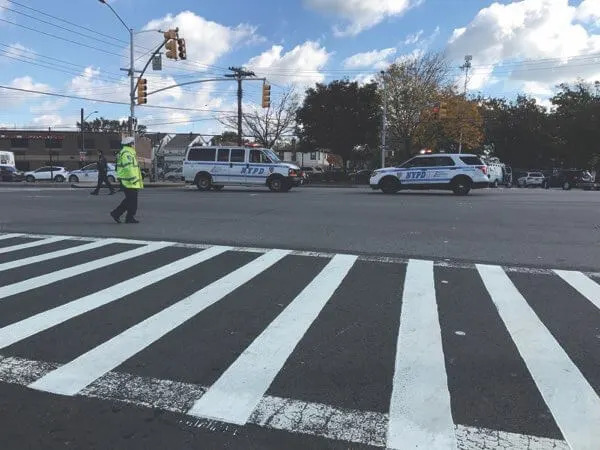By Kathianne Boniello
There's something blooming on Little Neck Parkway – something large and green that generates a lot of pleasure for the 30 “farmers” who have given it daily love and attention for the last several months.
That something is a large garden on the property of the Samuel J. Field Y at 58-20 Little Neck Parkway. Its many vegetables have been tended since June by a group of developmentally disabled adults who attend the F.E.G.S. Queens Day Habilitation program housed at the Y.
The better than 100-square-foot garden has been offering up broccoli, tomatoes, lettuces, peppers, jalapenos and corn that is about five feet tall, with what the F.E.G.S. supervisors happily describe as amazing success.
Kim Bischoff, supervisor of the F.E.G.S. program, said the garden has attracted the attention of the community as well as passersby who admire the tall greens and bushy vegetables.
“They didn't have anything here,” Bischoff said as she stood in the sunshine of a warm Friday morning surveying the garden. “They had planted grass, but it died.”
The group – which volunteers its time at about 35 sites around Queens, including Alley Pond Park and the Queens County Farm Museum – had worked with small gardens before, she said.
Assistant Supervisor Learie Carrington said “we started in pots.”
Now the 30 developmentally disabled adults who come from all over Queens to participate in the F.E.G.S. program take time to work in the garden, planting seeds, watering it and pulling weeds.
Bischoff said Carrington was instrumental in getting the garden started.
The work began, Carrington said, after the Y extended its building, making the land available. Back in April the group began cleaning the area of debris and over time made it suitable for planting, he said.
Both Bischoff and Carrington credit the Queens County Farm Museum for its support and for donating manure from the farm, which Carrington said have helped make the garden a success.
“It was a lot of hard work,” Carrington said. “I never would have thought it would come up. There are tons of people who pass – it has taken on something of its own. It kind of belongs to the community now, even though the guys work on it.”
Bischoff said working on the garden was good for the program's clients.
“It brings them together and lets them see what they can do and what they're capable of,” she said.
Carrington said “not only do they get the chance to work in the garden, they get the chance to see the fruits of their labor. What more self-satisfaction is there?”






























